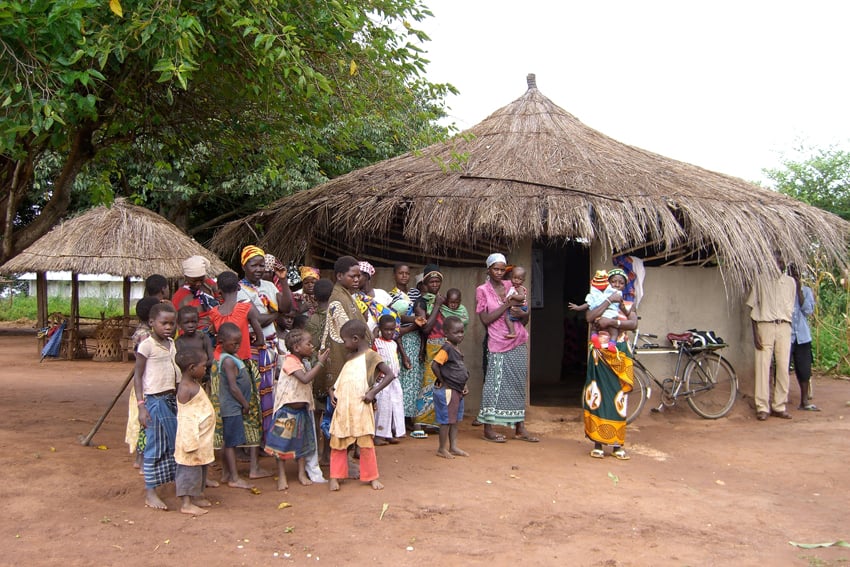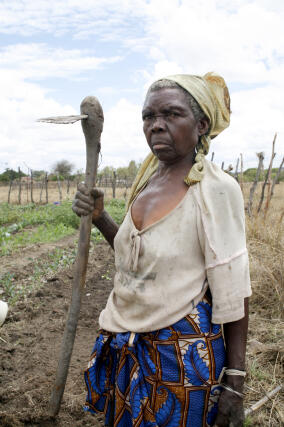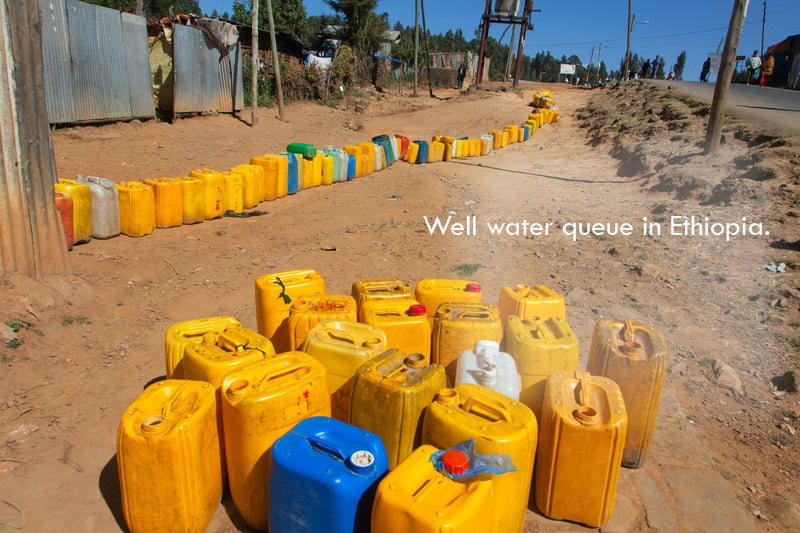Confronting the Challenges of Development
 This blog is the first in a new series Planet Aid is introducing called "The Challenges of Development." These posts will examine the myriad issues facing development work and what strategies and solutions are available to make life better for the poorest of the poor.
This blog is the first in a new series Planet Aid is introducing called "The Challenges of Development." These posts will examine the myriad issues facing development work and what strategies and solutions are available to make life better for the poorest of the poor.
We are winning the war on global poverty. Despite the negative news, the truth is that the world is making steady progress toward a better life for all. Unfortunately, most people do not see it that way.
What is absent from the public discourse on "solving" the problem of development is just how complex the challenges are. The roots of underdevelopment are deep and thorny, with civil wars (proxy wars in some cases), epidemic diseases, and, more recently, the severe impacts of climate change weighing down progress.
But this does not mean we should give up. Absolutely not. Progress may have been slow, but the success at relieving extreme poverty over the last few decades has been worth it.
The question is how can we build on what has been accomplished to date. Are there better or perhaps "faster" ways for development to occur? Should we change the paradigm?
Gates vs. Buffetts
Two perspectives on how to "solve" development problems are reflected in the philosophies of Bill Gates and Howard and Peter Buffet (Warren's sons). Both Gates and the two Buffets have large foundations funding development in Africa and elsewhere, and are tackling the problem in different ways.
Gates considers underdeveloped countries to lack the technology that developed countries enjoy. The Gates Foundation thus emphasizes "innovation" in funding development initiatives, with a focus on technological solutions.
The Buffet brothers' view contrasts with that of Gates, especially with respect to agriculture. Howard (an experienced farmer) believes there is no quick and easy solution to food insecurity in Africa. According to Buffet, large donors have modeled their efforts in Africa on the "green revolution" of the 1960s, when modern agronomy introduced high-yield and disease-resistant wheat seeds, irrigation, and heavy doses of chemical fertilizers and pesticides to produce a bounty of crops to feed starving populations. Buffet contends that the green revolution model is unsuited to sub-Saharan Africa. The most daunting challenge is the fragile, degraded soil—other problems include a lack of reliable electricity and transportation and robust supply chains (essential to modern farming). The continent also has 123 distinct eco-regions requiring diverse farming methods.
Technology can't build organic matter. It can't create topsoil. It can't magically protect water quality. It's a quick fix, and Africa needs a long-term solution.
-Howard Buffet, The Atlantic
A New Revolution from the Ground Up
 Buffett favors what he calls a "brown revolution" —a focus on environmentally sustainable agriculture that minimizes erosion, preserves and regenerates soil, and makes the land more resilient, while also increasing yields. (This is fundamentally the conservation agricultural approach utilized by Planet Aid's Farmers' Clubs projects.) In contrast to the "green revolution," the brown revolution takes a realistic and more sensible tortoise-like approach, with the understanding that progress will be incremental.
Buffett favors what he calls a "brown revolution" —a focus on environmentally sustainable agriculture that minimizes erosion, preserves and regenerates soil, and makes the land more resilient, while also increasing yields. (This is fundamentally the conservation agricultural approach utilized by Planet Aid's Farmers' Clubs projects.) In contrast to the "green revolution," the brown revolution takes a realistic and more sensible tortoise-like approach, with the understanding that progress will be incremental.
Over the past decade, the Howard G. Buffett Foundation has invested hundreds of millions of dollars to identify and promote practical, low-cost methods of conservation farming—cover crops, no-till farming, locally bred seed varieties—that improve African soil quality and crop yields without chemical fertilizers and costly imported seeds. In Rwanda, for example, Buffet has started a project that is investing $500 million to combat hunger.
If you take a place like Africa where they have the most degraded soils in the world, very limited nutrients, ground that is farmed to death—literally to the point where you have to move on and farm another piece of ground—and all you're doing is throwing on synthetic fertilizer, it's like trying to put an oxygen mask on a cadaver and expecting it's going to start breathing again.
—Howard Buffet, The Atlantic
Peter Buffett is of the same sober mindset as his brother, rejecting the "quick fix" approach to development problems. He is also far more critical of neophytes who claim "expertise" and think they have all the answers.
People (including me) who had very little knowledge of a particular place would think that they could solve a local problem. Whether it involved farming methods, education practices, job training or business development, over and over I would hear people discuss transplanting what worked in one setting directly into another with little regard for culture, geography or societal norms.
—Peter Buffet, New York Times
Climate Change Reverses Development Progress
Climate change has raised even more hurdles for development. In a 2014 report Turn Down the Heat: Confronting the New Climate Normal, the World Bank indicated that the consequences of climate change for development would be severe. Crop yields would decline, water resources shift, sea-levels rise, and the livelihoods of millions of people put at risk. "These changes make it more difficult to reduce poverty and put in jeopardy the livelihoods of millions of people," Jim Yong Kim, President of the World Bank Group said.
This prediction by the World Bank soon became a tragic reality. A severe drought struck southern Africa beginning last year, creating widespread food shortages that continue to worsen to this day. Entire harvests were lost when rains abruptly stopped during the growing season. As a result, resources are being depleted, wells are drying up, and livestock are starving to death. The situation is not expected to improve until 2017 at the earliest.
Planet Aid understands the challenges the developing world faces. Through our support of a diverse array of projects over nearly two decades, we have made progress in helping those in need. Yes, there have been challenges and setbacks. Nevertheless, we are committed to helping the poor of the planet, who depend on all of us coming together to bring about positive change.

